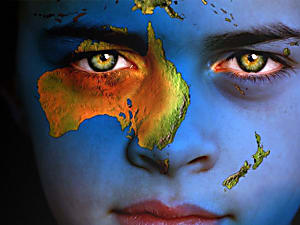If Donald Trump returns to power in 2025, he will find a world starkly different from the one he tried to construct while president. All hopes of normalizing relations with Russia have been obliterated in the slaughter of Ukraine. China is more powerful than ever. Iran is closer to acquiring nuclear weapons. And Kim Jong Un is still behaving like Kim Jong Un.
But, in a narrow yet important sense, the world has become more Trumpian since he left office. The NATO that met in Madrid this past week to agree on a new strategy to defend the West has started to resemble the kind of organization Trump and his wing of the Republican Party said they always wanted.
NATO’s European members are paying more for their own defense, the alliance is more Eastern European in its outlook and positioning, and, for the first time, it is explicitly focused on America’s great-power rivalry with China. Trump is not primarily responsible for these changes—for that he can thank Vladimir Putin—but they nevertheless signal an important moment for the West, as Europe moves to more closely align itself with American domestic political concerns. Europe’s shift is part of a bid to protect the status quo that has existed since NATO’s founding, but which is now threatened both by Russia’s aggression and by the U.S.’s growing focus on its great-power rival in the 21st century: China.
As well as NATO becoming more American in outlook, the grand strategies of countries that Trump so obviously distrusted—Germany and France in particular—have never been more irrelevant. Germany has been forced to abandon its long-held reticence to increase defense spending as well as its planned Nord Stream 2 gas pipeline with Russia. France, which has long sought a greater role for the European Union rather than NATO, today faces a continent that wants more NATO, not less, which, as France well understands, means support for U.S. primacy.
A similar reprioritization is taking place in the G7, another international organization Trump seemed to loathe, and that also met this past week, transformed by Russia’s invasion of Ukraine into a body that more obviously serves the American interest.
Notably, President Joe Biden has consciously rejected President Barack Obama’s prioritization of the wider G20 group of advanced economies, which included developing democracies such as India and Indonesia, but also Russia and China. In one of Obama’s first forays onto the world stage, he said that the G20 would from then on be the more important international format, better representing the 21st century than the kind of world where “there’s just Roosevelt and Churchill sitting in a room with a brandy.” His vice president has decided to reverse course and return the G7 to its former role, an organization that looks much more like a group of wealthy Western powers deciding how to get their way.






